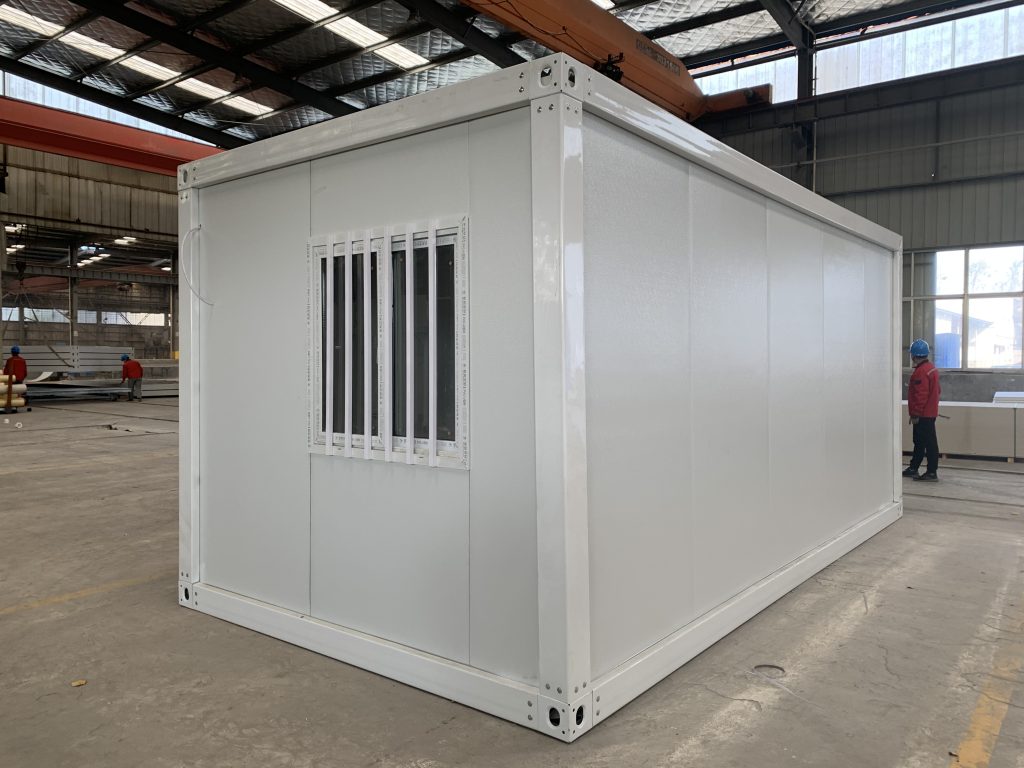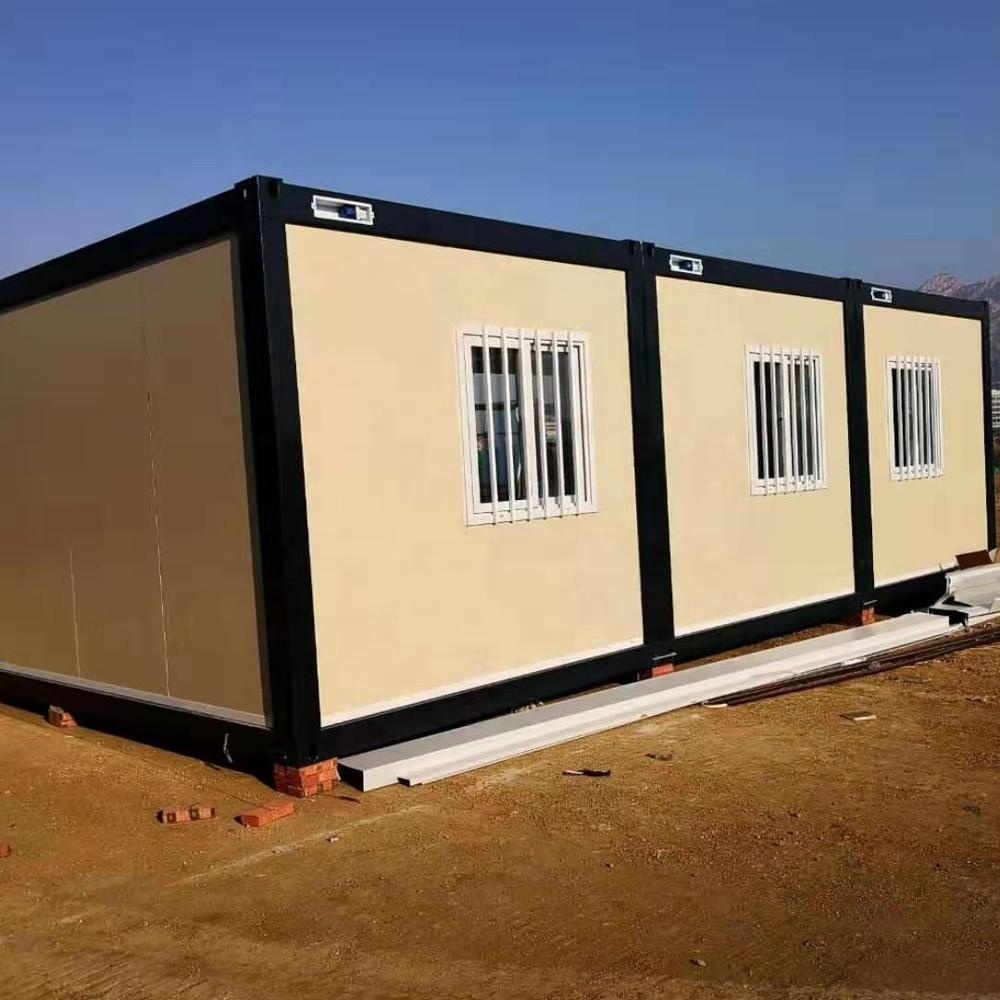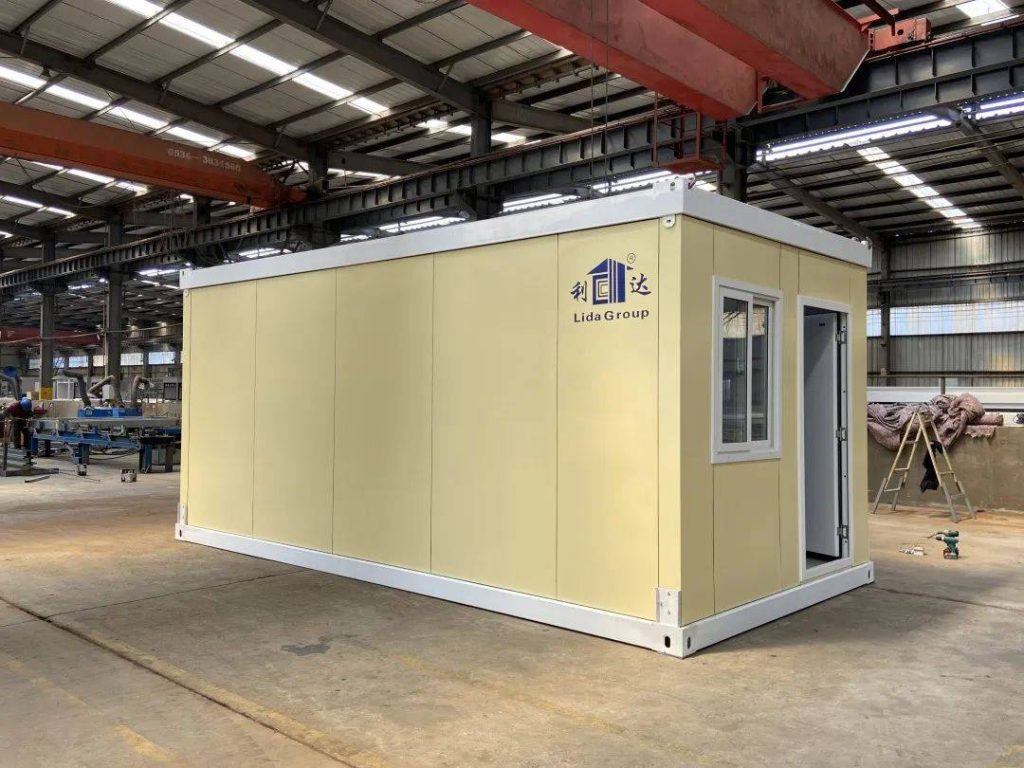As climate change brings more severe and unpredictable weather events, building resilient homes that can withstand floods, high winds, fires and other natural disasters is increasingly important. A recent academic study from a leading Australian university has given high marks to an innovative prefabricated housing solution that shows promise in this area – the structurally optimized container house design developed by Shenzhen-based modular construction company Lida Group.
For the research project, engineers and materials scientists from RMIT University subjected a prototype Lida Group container home to an extensive series of tests simulating some of the harshest climatic conditions found across Southeast Asia, Australia and other regions vulnerable to intensifying natural hazards driven by global warming.
The container home unit selected for evaluation incorporated a steel frame structure using recycled 40-foot shipping containers as the foundational building blocks. However, Lida Group’s proprietary design optimized the containers far beyond typical storage needs – rigorously reinforcing joints, adding bracing, weatherproofing components and other enhancements to strengthen the composite shell against high winds, flooding, seismic activity and fire threats.

To test wind performance, the container house was mounted on a large movable platform inside RMIT’s advanced research wind tunnel facility. Steady winds were gradually increased up to category 5 tropical cyclone levels of 250 km/h to duplicate exposure on unprotected coastal sites or islands. Impressively, no significant structural deformation occurred even at the extremes and the home held full weatherproof integrity.
Next, a rain chamber was employed to simulate weeks of continuous heavy downpour, with moisture sensors monitoring any intrusion points. None were detected thanks to the container’s coated surface, taped seams and gasketed wall junctions – confirming the home’s resilience against flooding and soaked soil settlement that commonly damages traditional foundations.
Fire resistance capacity followed using a controlled burn cell, igniting an interior combustible load to reproduce fast-moving wildfire fronts. Thermocouples mapped spread rates and peak surface temperatures, showing the thick insulated steel cladding contained all flames and heat within safe operational limits for over 4 hours as rated.

Lastly, a shaking table reproduced earthquake ground motions up to Richter scale 8 levels. While normal homes frequently split apart at the seems and lose structural integrity, the interlocked container house easily withstood repeated violent sideways and vertical accelerations with no compromise to its rigid steel frame configuration.
Upon reviewing the multidisciplinary test regime results, lead RMIT researcher Dr. Chen Hao praised Lida Group’s sophisticated engineering approach: “Traditional homes buckle under stresses like these, but the container house performed consistently better through its optimized structural design. The company’s prefabricated integrated steel system provides a resilience against natural disasters that Australians urgently need with climate impacts worsening.”
Many coastal, outback and island communities lack access to reinforced concrete construction able withstand cyclones and quakes. But Lida Group’s container homes offer an affordable prefab alternative ideal for these regions that can be rapidly deployed, requires no permanent skilled labor on-site, and possesses incredibly robust long-term resistance properties.

folding container house
Impressed by the research outcomes, the Australian government has since partnered with Lida Group to establish a local modular home factory as part of nationwide disaster preparedness investments. Their container house solutions will be prioritized for remote vulnerable settlements as well helping speed post-disaster reconstruction when events do strike populated areas.
As extreme weather manifestations accelerate globally, more governments and disaster-wary homeowners are recognizing the value of structurally sound resilient housing approaches like Lida Group’s. Beyond Australia, the company is already providing similar solutions targeting earthquake-prone Asian and Latin American nations from factory hubs positioned for rapid emergency response shipments when catastrophes occur.
With climate threats projected only to worsen and traditional building practices failing to keep pace, the RMIT study adds to a growing body of evidence that sustainable prefabricated housing systems optimized for natural hazards present a compelling path forward. For at-risk coastal, fire, flood and quake zones worldwide lacking robust infrastructure, modular container home designs may offer the surest shelter from rising disruption ahead.
In summary, through systematic laboratory simulations replicating some of the harshest climates on earth, this university study found Lida Group’s structurally optimized container house design withstood high winds, flooding, fire and seismic events better than traditional homes through its resilient prefabricated construction. As climate change drives more extreme weather, such structurally sound modular solutions can help protect increasingly vulnerable communities worldwide from worsening natural disaster impacts through their longevity, sustainability and ability to rapidly rebuild devastated areas. With further innovation, they may ultimately transform resilient housing globally.

Related news
-
Non-Profit Collaborates with Prefab Builder Lida Group to Deploy Temporary Yet Durable Mobile Container Camp Providing Immediate Shelter for Displacedwildfire Refugees
2023-12-05 10:29:06
-
Lida Group Breaks Ground on Innovative Prefabricated Manufactured Home Development Leveraging Sustainable Features of Structurally Versatile Container Housing Modules
2023-12-04 17:55:18
-
Lida Group Launches Portable Prefabricated Mobile Camp Utilizing Stackable Container Home Design to Provide Temporary Accommodations in Remote Regions
2023-12-04 17:32:10
contact us
- Tel: +86-532-88966982
- Whatsapp: +86-13793209022
- E-mail: sales@lidajituan.com


